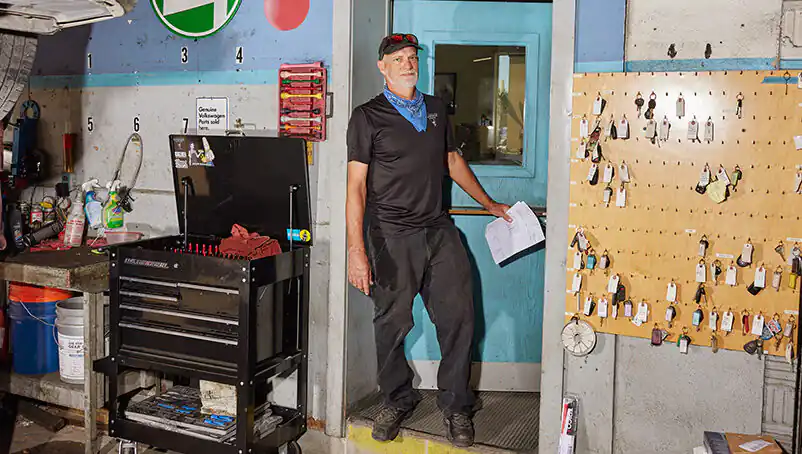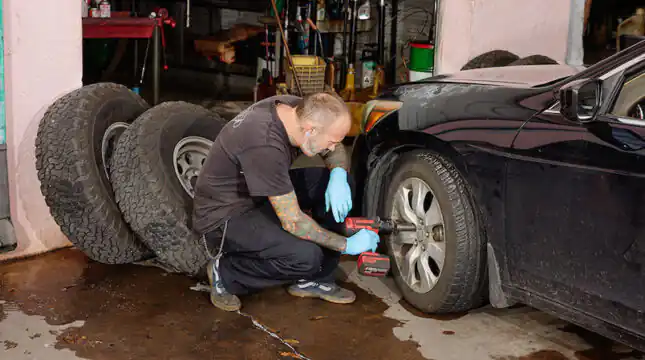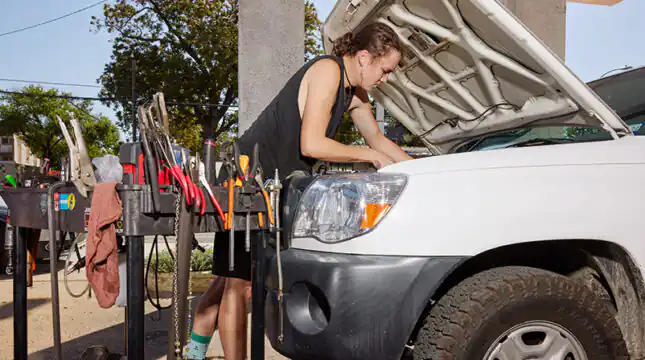Starting a new auto repair business is exciting. It can be tempting to jump right in with both feet without taking the time to think through your plans for the business.
Creating a business plan can help you clarify your goals and provide a roadmap for the steps you need to take to achieve them. If you need financing to cover start-up expenses, lenders will ask to see a copy of your business plan.
If this sounds overwhelming, it doesn’t have to be. Your auto repair shop business plan doesn’t need to be complicated or long. It just needs to guide you in the right direction.
Here are six steps to help you get started.
1. Compose an executive summary
Although the executive summary is the first section of your plan, sometimes it’s easier to write it last. It should be no more than a page long and provide an overview of your entire business. This includes whom you will serve, what services you will provide, your expected revenue and estimated expenses.
Keep it brief. You can go into greater detail about each of these elements in other sections of the plan.
2. Provide details about the company
This section should contain information about the founder(s) or owner(s), including their education, certifications and work experience — basically, anything that makes you and your partners (if applicable) qualified to start an auto repair shop.
This is also where you'll provide details about your business structure (e.g., sole proprietorship, LLC, partnership, etc.). Don't forget to include whether you plan to hire additional employees, and if so, how many and when.
3. Conduct a market analysis
When you’re starting a business, it's important to understand the competitive landscape. Present the results of your research about the current market, including what businesses, such as dealerships and independent mechanic workshops provide similar services in your area.
If there are gaps in available services, will your business help fill them? If so, how? If not, what opportunity is there for you in the market? Does the demand for automotive repair services exceed the current supply?
You’ll also want to provide information about the current market rate for the services you plan to offer and how your pricing will compare to other providers.
4. Decide what services you will offer
You’ll need to decide what type of auto repair shop you will open and the services you will offer. Will you provide general automotive maintenance and repair services, or will you specialize in a specific area, such as transmissions or engines?
Building a reputation as the go-to provider for a specific service may allow you to charge more, but it limits the pool of potential customers you can work with. What happens when someone needs their front end aligned or brakes replaced?
If you have plans to offer future services that you won't provide when you first open, include those in this section as well.
5. Create a sales and marketing plan
Keeping a steady flow of customers coming through the door is critical to maintaining a profitable business. The good news is there are lots of simple and inexpensive ways to market your business, including:
- Holding a grand opening
- Posting flyers in your community
- Asking friends and family to spread the word
- Running a special promotion when you first open
Decide which tactics you will use and document them in this section.
6. Prepare the financials
Starting an auto repair business requires a significant upfront investment. Having a detailed financial plan can help set you up for success. If you plan to apply for a loan to purchase the equipment and supplies you need to get started, lenders will be especially interested in this section.
You can begin by listing the items you need to operate your business, including one-time and recurring expenses, such as:
- Equipment. You can't work on cars without vehicle lifts, engine hoists, jacks, air compressors and more. Be sure to include all of the equipment you’ll need to get started.
- Rent or lease. If you're not planning to set up your auto repair shop in your home garage, you'll need to pay for space where you can work on customer vehicles.
- Licenses and permits. Most jurisdictions require businesses to have certain permits and fees to operate legally. Check with your city, county and state to find out the requirements in your area and include their fees in your budget.
- Utilities. You should include utility payments in your monthly budget.
- Internet, phone and software. Don't forget about the phone, internet and other technology you need to run your business.
Once you've accounted for your potential expenses, estimate your revenue and create cash flow projections. Business plans typically include three to five years of financial projections, including when you expect to reach your "break-even" point.
How detailed does an auto repair shop business plan need to be?
Putting together a business plan will take a little time and effort, but you’re not writing the next great American novel. The level of detail you need to provide depends on how you plan to use it.
A high-level overview is sufficient if you only plan to use it internally to help you stay on track and measure your progress. Just be sure to include all the items listed here. Taking the time to think over your plans can help clarify your goals.
If you’re going to apply for financing to cover your start-up costs, you'll need a more detailed plan to show lenders. In addition to reviewing your credit and other factors, lenders will use your auto repair shop business plan to help them make a lending decision.
Insurance considerations for auto repair businesses
Starting a business takes a lot of planning, hard work and dedication. If you're going to put the time and effort into building a business, it's important to protect it. Having the right insurance coverage can help you do that.
We know you wear many different hats as a business owner, which is why we make it easy and affordable to get the auto repair shop insurance you need to protect your business.
Choose from general liability, commercial property, garagekeepers liability and faulty work coverage.
With our online application, you can see policy options, get a quote, purchase coverage and get your certificate of insurance — all in less than 10 minutes. So, you can get back to building your business.






